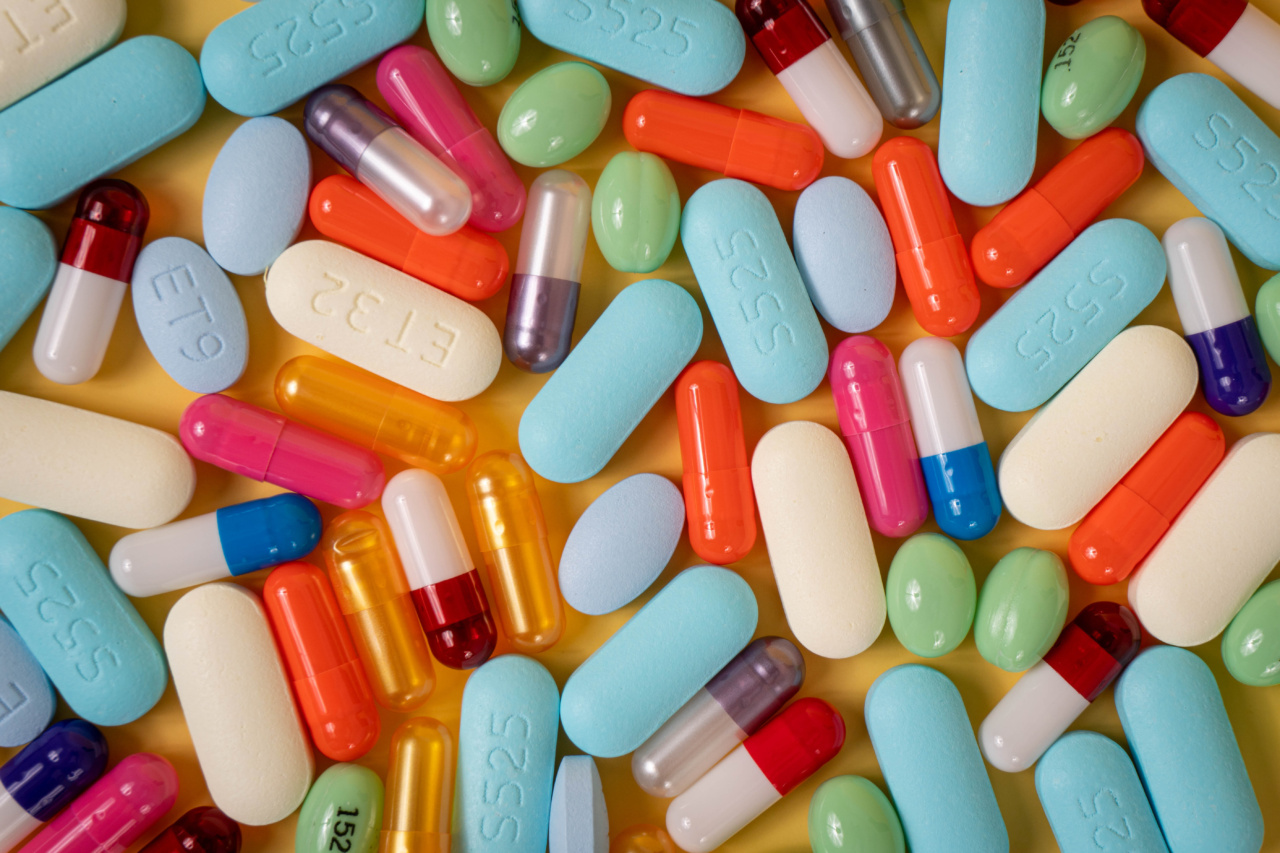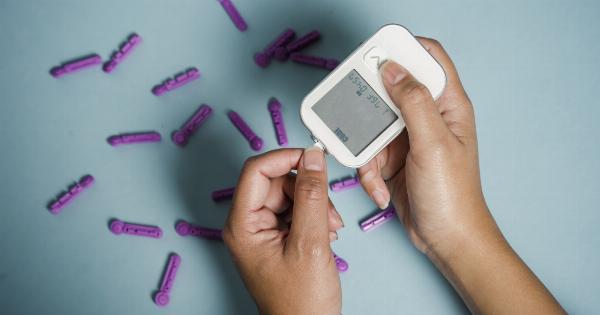Managing blood sugar, blood pressure, and cholesterol levels are essential for maintaining overall health and preventing various chronic diseases.
While lifestyle modifications like a healthy diet, regular exercise, and stress management play a crucial role in improving these parameters, prescription medications are often necessary to achieve optimal control. In this article, we will explore some commonly prescribed medications for improving sugar, pressure, and cholesterol levels.
1. Medications for Blood Sugar Levels
Individuals with diabetes, a condition characterized by high blood sugar levels, may require medications to help manage their glucose levels effectively. Some commonly prescribed medications for blood sugar control include:.
1.1. Metformin
Metformin is the first-line medication for managing type 2 diabetes. It works by reducing glucose production in the liver and improving insulin sensitivity. Metformin is often prescribed alongside lifestyle modifications like diet and exercise.
1.2. Sulfonylureas
Sulfonylureas, such as glimepiride and glipizide, stimulate the pancreas to produce more insulin. These medications can be taken alone or in combination with other drugs.
However, they may increase the risk of hypoglycemia (low blood sugar) compared to other medications.
1.3. Thiazolidinediones
Thiazolidinediones, like pioglitazone, help improve insulin sensitivity. They work by increasing the body’s response to insulin.
These medications are usually prescribed for individuals with insulin resistance or as an alternative when other medications are not well-tolerated.
1.4. DPP-4 Inhibitors
DPP-4 (dipeptidyl peptidase-4) inhibitors, including sitagliptin and saxagliptin, work by blocking the enzyme that breaks down incretin hormones.
Incretin hormones stimulate insulin release and reduce glucagon secretion, helping to lower blood sugar levels.
1.5. SGLT2 Inhibitors
SGLT2 (sodium-glucose cotransporter-2) inhibitors, such as canagliflozin and dapagliflozin, work by preventing the kidneys from reabsorbing glucose, leading to increased glucose excretion through urine.
These medications also have a beneficial effect on blood pressure and weight.
2. Medications for Blood Pressure Control
High blood pressure, or hypertension, is a prevalent condition that increases the risk of heart disease, stroke, and other complications. Various medications are available to effectively manage blood pressure:.
2.1. Diuretics
Diuretics, commonly known as water pills, help the body eliminate excess sodium and fluid, thereby reducing blood volume and lowering blood pressure. Examples include hydrochlorothiazide and furosemide.
2.2. ACE Inhibitors
ACE (angiotensin-converting enzyme) inhibitors, such as lisinopril and enalapril, block the production of angiotensin II, a hormone that causes blood vessels to narrow. By relaxing blood vessels, ACE inhibitors help lower blood pressure.
2.3. Beta Blockers
Beta blockers, like metoprolol and propranolol, reduce the heart’s workload by blocking the effects of adrenaline. As a result, the heart beats slower and with less force, reducing blood pressure.
2.4. Calcium Channel Blockers
Calcium channel blockers, such as amlodipine and diltiazem, inhibit the entry of calcium into muscle cells of the heart and blood vessels. Consequently, blood vessels relax, and blood pressure decreases.
2.5. Angiotensin II Receptor Blockers
Angiotensin II receptor blockers (ARBs), including losartan and valsartan, block the action of angiotensin II, leading to blood vessel dilation and blood pressure reduction.
3. Medications for Cholesterol Management
Elevated cholesterol levels contribute to the development of atherosclerosis and increase the risk of heart disease. Medications aimed at lowering cholesterol levels include:.
3.1. Statins
Statins, such as atorvastatin and simvastatin, are commonly prescribed to reduce LDL (bad) cholesterol levels. They inhibit an enzyme involved in cholesterol production, thereby lowering overall cholesterol levels.
3.2. Bile Acid Sequestrants
Bile acid sequestrants, like cholestyramine and colesevelam, bind to bile acids in the intestine, preventing their reabsorption. This process leads to increased cholesterol excretion and reduced LDL cholesterol levels.
3.3. PCSK9 Inhibitors
PCSK9 (proprotein convertase subtilisin/kexin type 9) inhibitors, such as alirocumab and evolocumab, are a newer class of drugs that help lower LDL cholesterol levels by inhibiting the PCSK9 enzyme.
This allows more LDL receptors to remove cholesterol from the bloodstream.
3.4. Fibrates
Fibrates, like fenofibrate and gemfibrozil, primarily help lower triglyceride levels and increase HDL (good) cholesterol levels. They are often prescribed to individuals with high triglyceride levels or those at risk of pancreatitis.
3.5. Niacin
Niacin, also known as vitamin B3, can lower LDL cholesterol and triglyceride levels while increasing HDL cholesterol levels. However, it may cause uncomfortable side effects like flushing and itching, so it is prescribed with caution.
Conclusion
Prescription medications play a vital role in improving blood sugar, blood pressure, and cholesterol levels. It’s important to remember that these medications should always be taken under the guidance of a healthcare professional.
Alongside medications, adopting a healthy lifestyle by following a balanced diet, engaging in regular physical activity, and managing stress is crucial for achieving optimal results in managing these parameters and maintaining overall health.





























